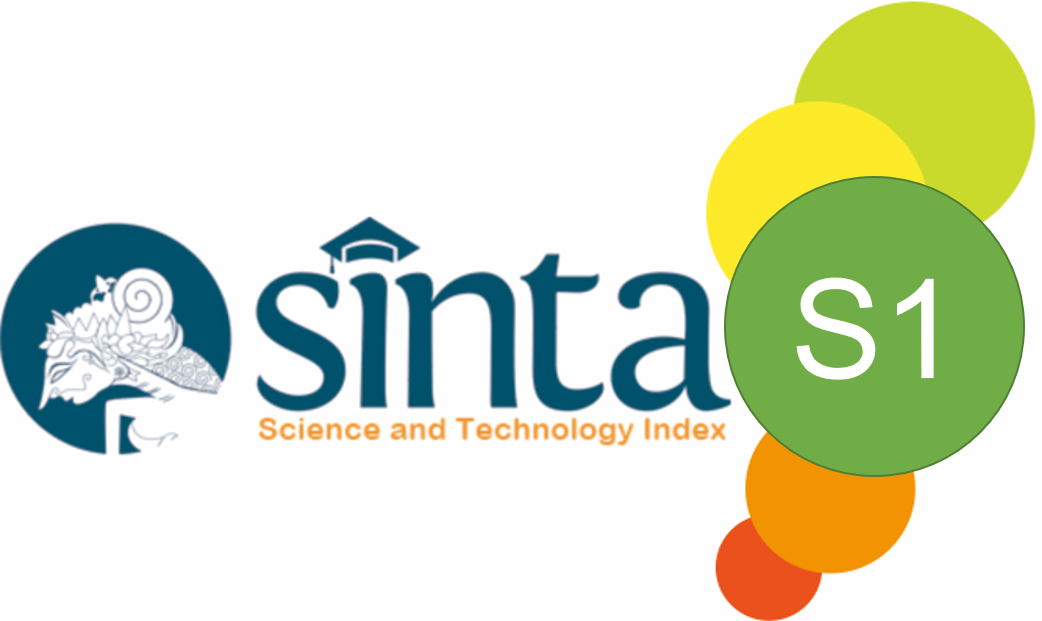Trends in Expert System Development: A Practicum Content Analysis in Vocational Education for Over Grow Pandemic Learning Problems
Abstract
The impact of the COVID-19 has emerged as a varied issue, ranging from the economy, society's social order, and education, especially when social and physical distancing have been introduced in various areas of community activities as one of the prevention. It has also affected the tertiary education institution where learning activities should be conducted from and at home, forcing the higher education communities to shift learning from conventional learning to online learning. Needless to say, learning that does not require practicum is easier compared to learning that needs it. Consequently, it is a new task for lecturers to ensure the meaningful practicum learning implementation is conducted as it should be. Therefore, the creation of expert systems for practicum learning in vocational education is urgently required in online learning. The aim of this literature review was to examine the development of an expert system used at practicum learning in tertiary institutions and how the design of learning systems could be integrated into vocational education in facing the COVID-19 pandemic. The method used was the literature study, through research stages starting from the finding and selection of articles and journals with relevant topics, and then analysing the data. The findings of this study was to identify the development of an expert program in an attempt to promote practicum learning using e-learning in the midst of the COVID-19 pandemic outbreak.
Keywords
Full Text:
PDFReferences
AlHamad, A. Q., Yaacob, N., & Al-Omari, F. (2012). Applying JESS rules to personalize Learning Management System (LMS) using online quizzes. In 2012 15th International Conference on Interactive Collaborative Learning (ICL), pp. 1-4. https://ieeexplore.ieee.org/abstract/document/6402213, retrieved on March 10, 2020.
Aminudin, N., Taufiq, T., & Amaliah, I. B. (2019). Sistem pakar diagnosa penyakit ayam ras petelur. Jurnal TAM (Technology Acceptance Model), 10(1), 33-40.
Arhami, M. (2005). Konsep dasar sistem pakar. Yogyakarta: Andi, 206.
Borges, M., Benett, Y., Lewis, M., & Thorn, M. (1994). An expert system approach to curriculum development in engineering education. European Journal of Engineering Education, 19(2), 175-189.
Borštnar, M. K., & Pucihar, A. (2014). Impacts of the implementation of a project management information system–a case study of a small R&D company. Organizacija, 47(1), 14-23.
Cascella, M., Rajnik, M., Cuomo, A., Dulebohn, S. C., & Di Napoli, R. (2020). Features, evaluation and treatment coronavirus (COVID-19). In Statpearls [internet]. StatPearls Publishing. https://www.ncbi.nlm.nih.gov/books/NBK554776/, retrieved on March 12, 2020
Chojnacki, E., Plumecocq, W., & Audouin, L. (2019). An expert system based on a Bayesian network for fire safety analysis in nuclear area. Fire Safety Journal, 105, 28-40.
Copeland, J. (2015). Artificial intelligence: A philosophical introduction. John Wiley & Sons.
Dashraath, P., Jeslyn, W. J. L., Karen, L. M. X., Min, L. L., Sarah, L., Biswas, A., & Lin, S. L. (2020). Coronavirus disease 2019 (COVID-19) pandemic and pregnancy. American Journal of Obstetrics and Gynecology, in press.
Dyrberg, N. R., Treusch, A. H., & Wiegand, C. (2017). Virtual laboratories in science education: Students’ motivation and experiences in two tertiary biology courses. Journal of Biological Education, 51(4), 358-374.
de la Peña Esteban, F. D., Lara Torralbo, J. A., Lizcano Casas, D., & Martínez Rey, M. A. (2019). Expert system for problem solving in distance university education: The successful case of the subject “operations management”. Expert Systems, 36(5), e12444.
El Haji, E., Azmani, A., & El Harzli, M. (2014). Expert system design for educational and vocational guidance, using a multi-agent system. In 2014 International Conference on Multimedia Computing and Systems (ICMCS) (pp. 1018-1024). https://ieeexplore.ieee.org/abstract/document/6911256/, retrieved on March 17, 2020.
Frenzel, L. E. (1987). Understanding expert systems. Sams and Company, 73-93. https://dl.acm.org/doi/book/10.5555/535543, retrieved on March 17, 2020.
Grosch, M. (2017). Developing a competency standard for TVET teacher education in ASEAN countries. Jurnal Pendidikan Teknologi dan Kejuruan, 23(3), 279-287.
Gupta, Y., & Raghuwanshi, G. (2019). Student Performance Evaluation Expert System Using Machine Learning to Make Cognitive Decisions. https://papers.ssrn.com/sol3/papers.cfm?abstract_id=3356244, retrieved on March 5, 2020.
Handayani, M. N., Ali, M., Wahyudin, D., & Mukhidin, M. (2020). Green Skills Understanding of agricultural vocational school teachers around West Java Indonesia. Indonesian Journal of Science and Technology, 5(1), 21-30.
Hastuti, I., Purnomo, S., & Lestari, W. (2018). The guidance of technopreneurship using expert system computing approach based on entrepreneurial values and multiple intelligences. International Journal of Economics, Business and Accounting Research (IJEBAR), 2(3), 27-35.
https://en.unesco.org/covid19/educationresponse, retrieved on March 18, 2020.
https://globalvaluechains.org/publication/global-value-chains-challenges-opportunities-and-implications-policy, retrieved on March 10, 2020.
https://www.who.int/emergencies/diseases/novel-Coronavirus-2019/advice-for-public/when-and-how-to-use-masks?gclid=EAIaIQobChMI88ft4Iyr6QIVSwVgCh3I1QlGEAAYASAAEgK6EvD_BwE, retrieved on March 18, 2020.
https://www.who.int/emergencies/diseases/novel-coronavirus-2019, retrieved on March 18, 2020.
https://www.worldometers.info/coronavirus/, retrieved on March 18, 2020.
Lee, M. K., & Turban, E. (2001). A trust model for consumer internet shopping. International Journal of Electronic Commerce, 6(1), 75-91.
Lindsay, R. K., Buchanan, B. G., Feigenbaum, E. A., & Lederberg, J. (1993). DENDRAL: a case study of the first expert system for scientific hypothesis formation. Artificial intelligence, 61(2), 209-261.
Lytvyn, A., Lytvyn, V., Rudenko, L., Pelekh, Y., Dіdenko, O., Muszkieta, R., & Żukow, W. (2020). Informatization of technical vocational schools: Theoretical foundations and practical approaches. Education and Information Technologies, 25(1), 583-609.
Maosul, A., Ana, A., Nurhayati, A., & Patriasih, R. (2019). Performance Assessment Student with Special Needs. Indonesian Sambal Competence in Inclusive Vocational School. In 5th UPI International Conference on Technical and Vocational Education and Training (ICTVET 2018). Atlantis Press.
Radwan, N. M., Senousy, M. B., & Riad, A. E. D. M. (2016). A new expert system for learning management systems evaluation based on neutrosophic sets. Expert Systems, 33(6), 548-558.
Maknun, J., Barliana, M. S., & Cahyani, D. (2019). A design model of special vocational high school for children with visual impairment. Indonesian Journal of Science and Technology, 4(2), 158-170.
McLeod, R., & Schell, G. P. (2007). Management information systems. USA: Pearson/Prentice Hall.
Merritt, D. (2000). Building Expert Systems in Prolog Amzi. https://www.google.com/url?sa=t&rct=j&q=&esrc=s&source=web&cd=1&ved=2ahUKEwiE-sDYoavpAhXGe30KHXLVAaYQFjAAegQIAhAB&url=http%3A%2F%2Fwww.amzi.com%2Fdistribution%2Ffiles%2Fxsip_book.pdf&usg=AOvVaw1bdn0RPvl_FWa8WiIfOngD, retrieved on March 13, 2020.
Muktiarni, M., Widiaty, I., Abdullah, A. G., Ana, A., & Yulia, C. (2019). Digitalisation trend in education during industry 4.0. Journal of Physics: Conference Series, 1402(7), 077070.
Prasetya, R. D. (2019). Sistem Penunjang Keputusan Untuk Penentuan Nilai Praktikum Menggunakan Inferensi Fuzzy Mamdani (Doctoral dissertation, Universitas Mercu Buana Yogyakarta).
Reddy, P. D., & Mahajan, A. (2016, July). Expert System for Generating Teaching Plan Based on Measurable Learning Objectives and Assessment. In 2016 IEEE 16th International Conference on Advanced Learning Technologies (ICALT) (pp. 207-208). IEEE. https://ieeexplore.ieee.org/abstract/document/7756959, retrieved on March 10, 2020.
Sadly, M., Hendiarti, N., Sachoemar, S. I., & Faisal, Y. (2009). Fishing ground prediction using a knowledge-based expert system geographical information system model in the South and Central Sulawesi coastal waters of Indonesia. International Journal of Remote Sensing, 30(24), 6429-6440.
Schmalhofer, F. (2001). Expert systems in cognitive science. International Encyclopedia of the Social and Behavioral Sciences, 1, 5128-5135.
Simsek, I., Balaban, M. E., & Ergin, H. (2019). The use of expert systems in individualized online exams. The Turkish Online Journal of Education Technology, 18(2), 116–127.
Stella, N. N., & Madhu, B. (2013). Expert system as tools for efficient teaching and learning process in educational system in Nigeria , First Step. International Journal of Future Revolution in Computer Science and Communication Engineering, 3(12), 165–168.
Supriyanto, G., Widiaty, I., Abdullah, A. G., & Yustiana, Y. R. (2019, December). Application expert system career guidance for students. Journal of Physics: Conference Series, 1402(6), 066031.
Tan, C. F., Wahidin, L. S., Khalil, S. N., Tamaldin, N., Hu, J., & Rauterberg, G. W. M. (2016). The application of expert system: A review of research and applications. ARPN Journal of Engineering and Applied Sciences, 11(4), 2448–2453.
Triatmaja, A. K., & Khairudin, M. (2018). Study on Skill Improvement of Digital Electronics Using Virtual Laboratory with Mobile Virtual Reality. Journal of Physics: Conference Series, 1140(1), 012021.
Vivian, W. 2020. Most Coronavirus Cases Are Mild. That’s Good and Bad News. https://www.nytimes.com/2020/02/27/world/asia/coronavirus-treament-recovery.html, retrieved on February 27, 2020.
Wadman, M., Couzin-Frankel, J., Kaiser, J., & Matacic, C. (2020). A rampage through the body. Science, 368(6489), 356-360.
Wagner, W. P. (2017). Trends in expert system development: A longitudinal content analysis of over thirty years of expert system case studies. Expert Systems with Applications, 76, 85-96.
Yunanto, W. (2007). Algoritma backward chaining pada rule-based expert system, Komunitas e-Learning Ilmu Komputer. https://www.google.com/url?sa=t&rct=j&q=&esrc=s&source=web&cd=1&cad=rja&uact=8&ved=2ahUKEwjZp9zvpqvpAhVLaCsKHQrCCQUQFjAAegQIAhAB&url=http%3A%2F%2Filmukomputer.org%2Fwp-content%2Fuploads%2F2007%2F03%2Fwyunanto-backwardchain.pdf&usg=AOvVaw2W4-JNpYlNQoSHk1wK2I92, March 10, 2020.
Zaimuddin, M. A., Winardi, S., Mudjanarko, S. W., & Anindito, B. (2019). Sistem booking parkir mall dengan identifikasi plat nomor kendaraan berbasis android. Jurnal TAM (Technology Acceptance Model), 10(2), 93-99.
Zhao, S., Lin, Q., Ran, J., Musa, S. S., Yang, G., Wang, W., & Wang, M. H. (2020). Preliminary estimation of the basic reproduction number of novel coronavirus (2019-nCoV) in China, from 2019 to 2020: A data-driven analysis in the early phase of the outbreak. International Journal of Infectious Diseases, 92, 214-217.
DOI: https://doi.org/10.17509/ijost.v5i2.24616
Refbacks
- There are currently no refbacks.
Copyright (c) 2020 Indonesian Journal of Science and Technology

This work is licensed under a Creative Commons Attribution-ShareAlike 4.0 International License.
Indonesian Journal of Science and Technology is published by UPI.
View My Stats




















